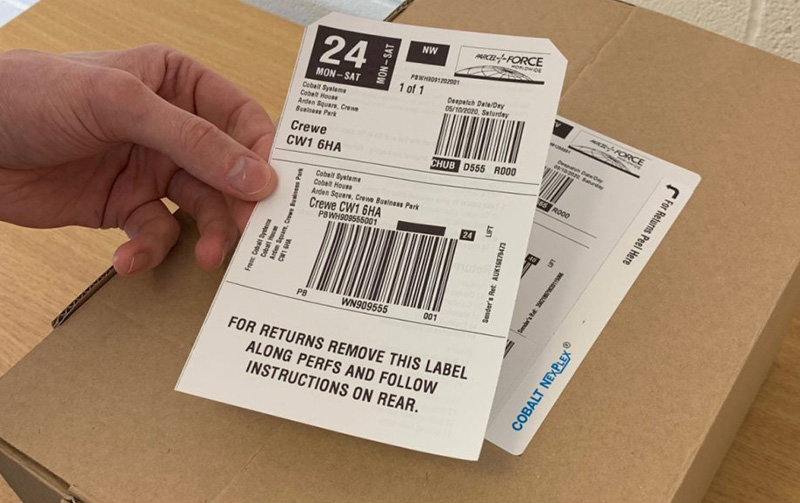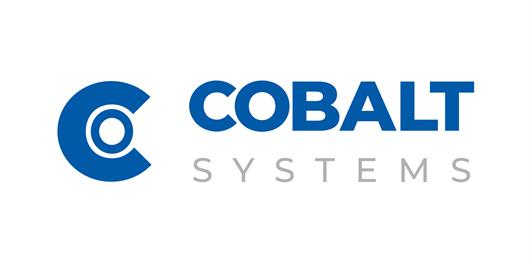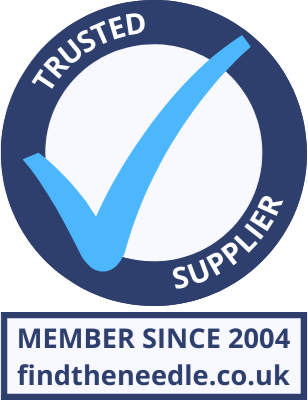 Add My Company
Add My Company

From extra sticky adhesive to extra small barcodes, specialist labels are needed for a wide variety of circumstances. But what are some of the more common types of specialist labels, and what are the situations in which that you’d need them?
At Cobalt, we’ve worked on countless projects, finding solutions for various challenges in different environments. We’re here to demonstrate the variety of specialist media that we have used in the past and highlight some of the ways out-of-the-ordinary labels can be used.
What is “specialist” media?
Specialist media can mean a wide range of things, but generally means any non-standard type of label for any application that requires it. These can include:
– Synthetic labels
– Small barcodes
– Specialist adhesive
– Plastic cores
– RFID labels
– Colour changing labels
– Tamper proof labels
– Adhesive deadened labels
– Cobalt NexPlex
But why would you need some of these specialist media? With labelling a vital part for many industries, different uses will require different materials, adhesives, and sizes. Our experts will run through the more common use cases for specialist labels.
What are the uses for different specialist media?
Synthetic labels
Synthetic labels are made of a range of polyester and polypropylene materials, which can be far more durable than traditional paper labels. For uses that require a label to stay readable over a longer period of time, synthetic labels are perfect. In industries such as pharmaceuticals, chemical manufacture, automotive, healthcare, food deliveries, and any other industry that needs traceability throughout the process, the ability to withstand temperature extremes, as well harsh chemicals, and strong resistance to scuffs makes synthetic labels the perfect option.
Small barcodes
In certain industries, having small barcodes to keep track of items is crucial. Keeping the barcodes as compact as possible can help with the smallest items that require tracking and traceability through a manufacturing process, such as components in electrical engineering and manufacturing.
Specialist adhesive
Certain types of material can be harder to label than others, especially rough surfaces. With companies moving towards using recycled plastics as part of their packaging, this has brought the difficulties of labelling into focus – especially in the greener zeitgeist. For these more challenging surfaces, specialist adhesives can bring your labelling back up to speed and keep your packaging lines moving as they should.
Plastic cores
The core – or the central reel on which the roll of labels sits – can be modified to be made out of plastic. This reduces the amount of dust generated during the labelling process, which can increase the longevity of the labelling machine and increase the effectiveness of an adhesive. Plastic cores can also be useful in industries such as pharmaceutical manufacturing, where every component needs to be sterilised before use.
RFID labels
RFID labels incorporate tags which can be read by RFID scanners, giving easy access to useful information about the product or item that the tag is applied to. These labels require certain minimum dimensions, due to the embedded RFID tag, but can be extremely useful for product recovery and logistics. One example of RFID tags in labels is linking certain barcodes to certain RFID tags to ensure that the right product is delivered to the right place and returned when necessary. Reusable containers – such as plastic pallets in food deliveries – can be easily tracked through a cycle by combining barcodes and RFID tags.
Colour Changing Labels
When a product requires specific storage – such as needing to be kept at below 5 degrees – a colour change label can provide a rough estimate of the temperature. While this is not absolutely accurate, it can provide a quick, visual cue for employees to gauge the temperature of a label, and thus, of the product. These are useful in a wide range of settings, and show the utility that labelling can have.
Tamper Proof Labels
In sensitive applications, including labelling for pill boxes, tamper-proof labels can provide users and manufacturers certainty that the box hasn’t been opened or otherwise tampered with. The label will disintegrate or show a “void” warning if opened, giving certainty that the box hasn’t been opened before intended. This can be used in a wide variety of settings and can be especially important for medical uses.
Adhesive Deadened Labels
Areas on label can be adhesive deadened to allow for parts of label to be stripped without the adhesive. These are bespoke, and can be based on specific requirements. A good example is on NexPlex labels where the middle of label is deadened. For retail uses, or cases where parts of the label need to be removed without others, adhesive deadened labels can be crucial to the operation. Certain information can remain on a label while removing other parts.
NexPlex
NexPlex is a Cobalt specific product. It is ideal for returns labelling and built for the ecommerce industry, where sensitive information can be required to send items out, but can be redacted when returning the items. For more information about NexPlex and its various uses, read more here.
How Cobalt can help with specialist media
We know printing and labelling inside-out, and we can help you with the full range of specialist media to solve any problems that you might be having.
Our team are well placed to deal with the minutiae of your labelling processes and can help you with the big and the small when it comes to specialist labels, so don’t hesitate to get in touch.
For more information on What are specialist labels, and what are their uses? talk to Cobalt Systems Limited

